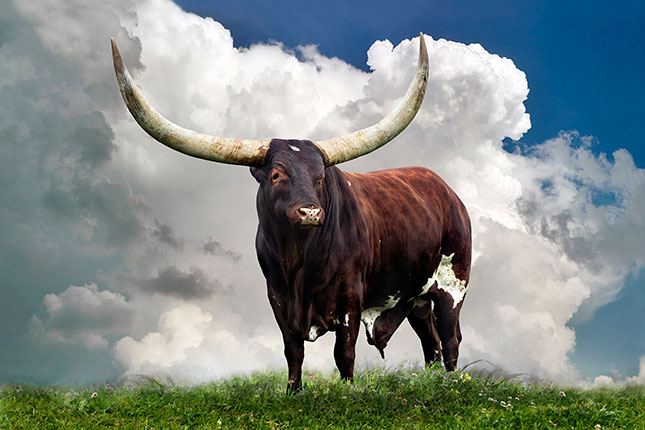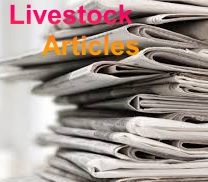A record price of R950 000 was achieved for a heifer and R340 000 for a female animal implanted with an embryo.
Daniel Naude, owner of Benella Ankole stud, achieved the highest price for a bull, when his Cumulus NANK 10-120 sold for R1,65 million. However, this did not beat the R3 million record set by the bull Sebastiaan A12 36 at last year’s auction.
- Advertisement -
READ Ankole Longhorn: Cyril Ramaphosa’s passion and pride
“The bull was impressive back then, but has become even more spectacular over the past five years, with his rutara-shaped horns measuring almost 1,8m from one tip to the other. Cumulus also has a diamond-shaped [mark] on his forehead, which Ugandan cattle breeders call Kyasha, giving him a royal status,” he said.
Naude added that it took him seven months to decide whether or not to sell Cumulus. “Cumulus is such a majestic animal, and I wanted him to grow old on the farm. In the end, however, I decided that it would be better to make his impressive genetics available to other farmers.”
Buyers’ information wasn’t made public at the auction, but Naude said he was curious about the bull’s new owner.
READ Bonsmara bull sells for record-breaking R2,1 million
Hosted by Veewinkel, a subdivision of Veilingswinkel, the auction took place at Ramaphosa’s Phala game farm near Bela-Bela in Limpopo.
Reportedly, the president did not attend the event, but offered six lots from his Ankole stud that sold for a total of R2,37 million.
Jaco Pretorius, CEO of Veewinkel, ascribed the good prices achieved to the growth in demand for the Ankole breed, which was reflected by the number of registered buyers increasing from 80 at last year’s auction to 200 at this year’s event.
Another factor was the limited availability of Ankole genetics, due to the “newness of the breed in the country”, he added.
At present, there were only about 800 Ankole cattle registered with the Ankole Cattle Breeders’ Society of South Africa.
Pretorius said that buyers considered breeding values and physical conformation when purchasing Ankole cattle, as was done at auctions of any other livestock, with the shape and sizes of the cattle’s horns having a definite impact on price.
“People buy Ankole cattle for their ‘wow factor’ in ecotourism, and for lobola, [while] the demand for them is also growing among cattle farmers thanks to their hardiness and ability to thrive under harsh, extensive conditions.”
He said he expected prices to plateau as more Ankole cattle became available in South Africa.


.jpg)






